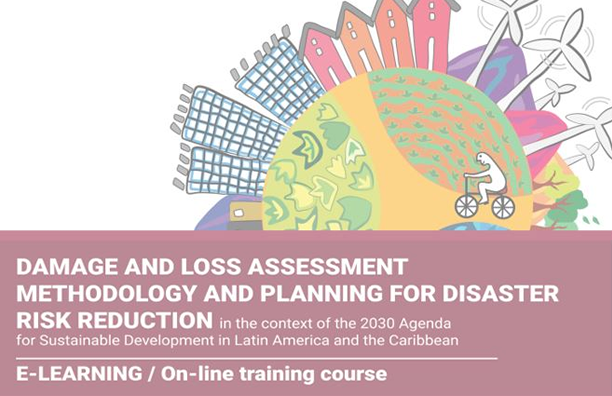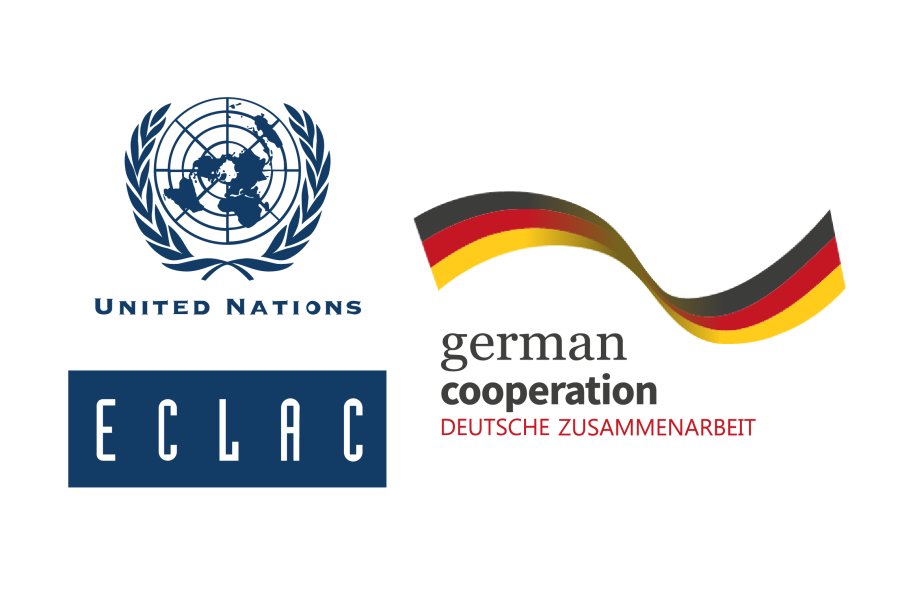Damage and Loss Assessment Methodology and Planning for Disaster Risk Reduction
Área(s) de trabajo
Organizers: Latin American and the Caribbean Institute for Economic and Social Planning –ILPES
Información del curso

Tipo de curso
Modalidad
Idioma del curso
Ámbito geográfico
Fecha
13 Ene - 10 Feb 2020, 06:00 - 15:30Date of registration
31 Oct - 01 Dic 2019Estado
Tipo de financiamiento
Precio
Financiamiento
Payment methods: credit card / bank transfer
(*) This fee must be cancelled by December, 6th.
Público objetivo
Language: English
Target Audience: The course is aimed primarily at key actors in the process of planning, implementing, following up and monitoring Agenda 2030 for the achievement of sustainable development objectives.
The course is mainly aimed to government officials from ministries of planning, public works and national emergency offices in charge of the development and implementation of strategies for disaster risk reduction
Duration: During this 4-week course, lessons will be enabled for students on a weekly basis. Each lesson has an estimated duration of 10 hours and should be completed before the following lesson is released.
Learning goals: Students are expected to:
- Review natural disasters terminology, as well as the global and regional panorama of disasters associated with natural hazards.
- Understand the role of planning as a fundamental exercise in disaster risk management
- Understand the link between disaster risk management, the 2030 Agenda for Sustainable Development and the Sendai Framework for Disaster Risk Reduction
- Understand the importance of disaster indicators to strengthen public policies
- Understand the Damage and Loss Assessment (DALA) methodology designed by ECLAC for the economic evaluation of disasters
- Apply the DALA methodology for the evaluation of sectors (social, infrastructure and productive) after a disaster occurrence
- Understand the cross-cutting consequences of natural disasters, such as macroeconomic and environmental impacts
Further information:
- Lessons will be put into practice through instructive exercises, short tests and group discussions.
- E-tutors will support the learning process and could be consulted at all times through the e-learning platform.
Adjunto(s)
País(es)
- Latin America and the Caribbean
Proyecto(s) relacionado(s)
Organizado por
Instituto Latinoamericano y del Caribe de Planificación Económica y Social (ILPES), CEPAL
- http://www.cepal.org/ilpes/
- (56-2) 2102507
Contacto
Joaquín Tognoli
- joaquin.tognoli1@cepal.org
